Termites in mulch!!!!! AH!!!!!!!!!!!!!!!
chueh
15 years ago
Featured Answer
Comments (31)
gardenlen
15 years agolast modified: 9 years agojean001
15 years agolast modified: 9 years agoRelated Professionals
Horsham Landscape Architects & Landscape Designers · Rancho Cordova Landscape Architects & Landscape Designers · Salisbury Landscape Architects & Landscape Designers · Burlington Landscape Contractors · McKinney Landscape Contractors · Cordele Landscape Contractors · Farmington Landscape Contractors · South Portland Landscape Contractors · West Chester Landscape Contractors · Weymouth Landscape Contractors · Selma Landscape Contractors · Norridge Landscape Contractors · Green Bay Decks, Patios & Outdoor Enclosures · Miami Decks, Patios & Outdoor Enclosures · Reisterstown Decks, Patios & Outdoor Enclosuresjbest123
15 years agolast modified: 9 years agochueh
15 years agolast modified: 9 years agojbest123
15 years agolast modified: 9 years agoKimmsr
15 years agolast modified: 9 years agochueh
15 years agolast modified: 9 years agojbest123
15 years agolast modified: 9 years agosudzy
15 years agolast modified: 9 years agoKimmsr
15 years agolast modified: 9 years agosudzy
15 years agolast modified: 9 years agofarkee
15 years agolast modified: 9 years agochueh
15 years agolast modified: 9 years agojoe.jr317
15 years agolast modified: 9 years agoasak9
15 years agolast modified: 9 years agojbest123
15 years agolast modified: 9 years agoadirondackgardener
15 years agolast modified: 9 years agoKimmsr
15 years agolast modified: 9 years agojoe.jr317
15 years agolast modified: 9 years agojollyrd
15 years agolast modified: 9 years agodavid52 Zone 6
15 years agolast modified: 9 years agodutch62
14 years agolast modified: 9 years agopennymca
14 years agolast modified: 9 years agojeremyjs
14 years agolast modified: 9 years agodrockmali_hotmail_com
12 years agolast modified: 9 years agoDrake Callis
7 years agolast modified: 7 years agotoxcrusadr
7 years agobobhanson117
5 years agotoxcrusadr
5 years agoPKponder TX Z7B
5 years ago
Related Stories

GARDENING GUIDESHow to Pick a Mulch — and Why Your Soil Wants It
There's more to topdressing than shredded wood. Learn about mulch types, costs and design considerations here
Full Story
GARDENING GUIDESNew Ways to Think About All That Mulch in the Garden
Before you go making a mountain out of a mulch hill, learn the facts about what your plants and soil really want
Full Story
GARDENING GUIDESGarden Myths to Debunk as You Dig This Fall and Rest Over Winter
Termites hate wood mulch, don’t amend soil for trees, avoid gravel in planters — and more nuggets of garden wisdom
Full Story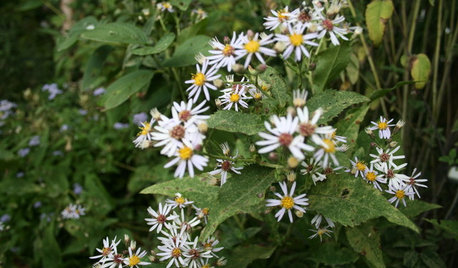
GARDENING GUIDES6 Native Ground Covers for Tough, Dry Spots
Sun beating down on your sandy gravel? Thick shade darkening your clay soil? There’s a ground cover here for you
Full Story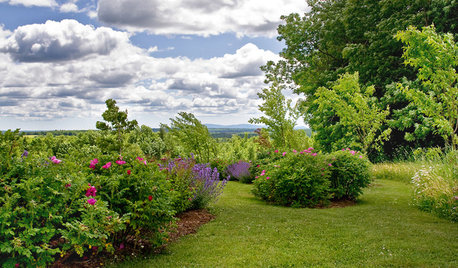
LANDSCAPE DESIGNYour Mini Guide to Great Garden Edges
Get the scoop on trenches to the skinny on bender board, to help keep your garden beds as tidy as you like
Full Story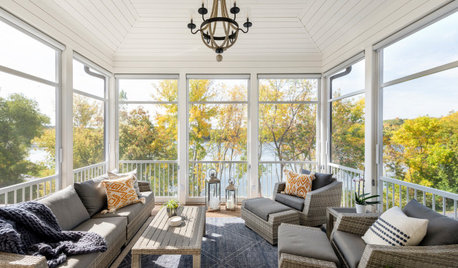
MONTHLY HOME CHECKLISTSYour Spring Home Maintenance Checklist
When winter weather departs, it’s time to check for damage and prepare for warm days ahead
Full Story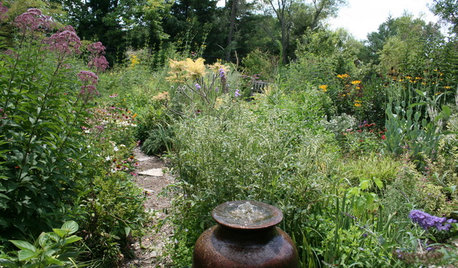
GARDENING GUIDESHow I Learned to Be an Imperfect Gardener
Letting go can lead to a deeper level of gardening and a richer relationship with the landscape. Here's how one nature lover did it
Full Story
LIFEFrom the Wild, Home: Elements of a Landscape of Experience
See how simplicity, mystery and lessons from nature can help you create a rich garden experience at home
Full Story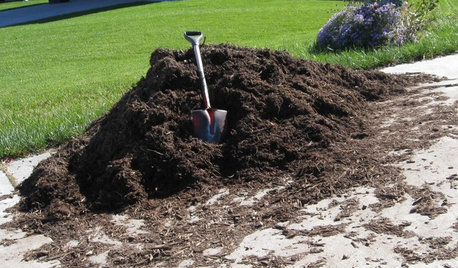
FRONT YARD IDEASBefore and After: Front Lawn to Prairie Garden
How they did it: Homeowners create a plan, stick to it and keep the neighbors (and wildlife) in mind
Full Story
INSPIRING GARDENSHouzz TV: Curves and Surprises Transform a Dry Backyard
A landscape architect’s decision to build a detached studio leads to a whole new backyard full of low-water plants and salvaged treasures
Full StoryMore Discussions






adirondackgardener